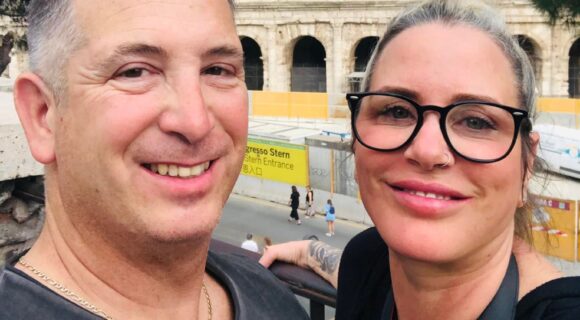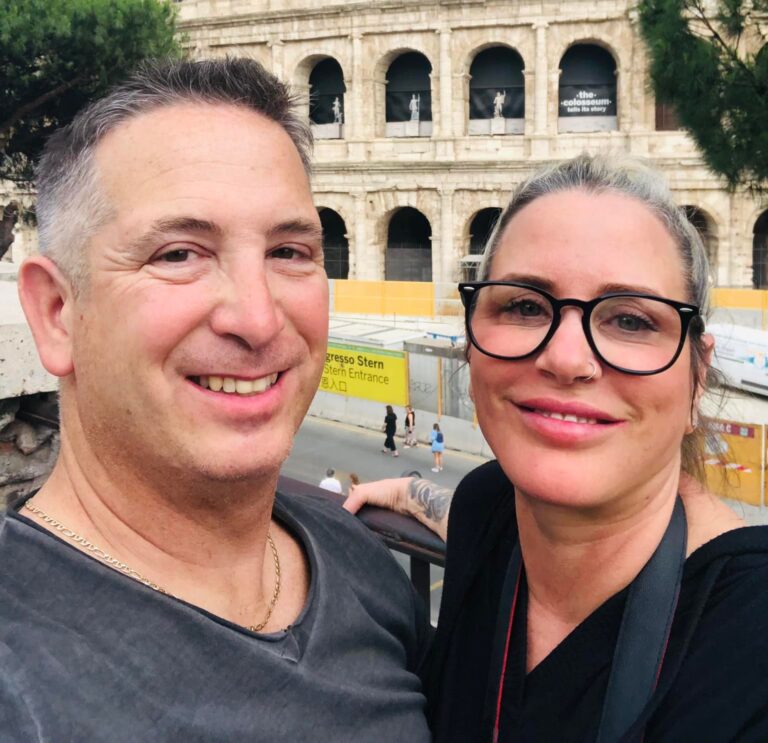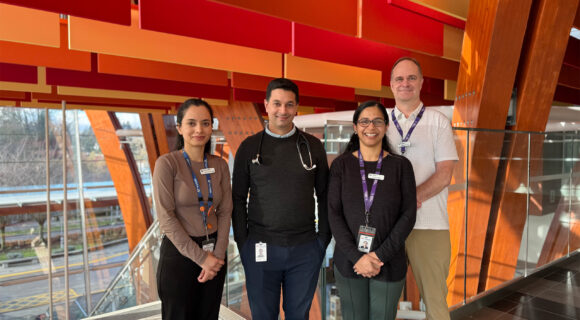
(Photo) The Movement Disorders Program team at the Jim Pattison Outpatient Care and Surgery Centre in Surrey
Living with a chronic neurological condition like Parkinson’s disease, essential tremor or dystonia means more than managing tremors or medication schedules. These conditions affect every aspect of life from walking and speaking to social connection and emotional well-being. That’s why a holistic approach to care, grounded in both compassion and innovation, is essential. And it’s happening right here in the city of Surrey.
At the Movement Disorders Program, based out of the Jim Pattison Outpatient Care and Surgery Centre in Surrey, patients from all across the Fraser Health region with complex conditions receive truly integrated care — a rarity even in Metro Vancouver.
“We have four movement disorders neurologists in the program,” explains Dr. Jason Chan, a neurologist with Fraser Health, “along with a nurse, two physical therapists, an occupational therapist, a speech-language pathologist, a pharmacist and a social worker. All working together, in the same clinic, for the same patients.”
This model isn’t just convenient — it’s transformative. Chronic neurological diseases often require a lifetime of adjustments. Having a care team that looks at the whole person, not just the disease, helps patients preserve function, dignity and quality of life.
Innovation in action: Deep Brain Stimulation care south of the Fraser
One standout innovation in Surrey is the launch of an integrated Deep Brain Stimulation (DBS) clinic, the first of its kind in Fraser Health. DBS is a surgical treatment for certain movement disorders where electrodes are implanted in the brain to deliver electrical impulses that reduce symptoms.
Until recently, post-operative DBS care in the Lower Mainland was only available in Vancouver, and patients had to navigate between multiple providers — the surgical DBS team in Vancouver and neurologists elsewhere — leading to delays and gaps in care. That changed when Dr. Chan, trained at the University of Florida with one of the highest-volume DBS centres in the world, began offering unified DBS programming and neurology follow-up in Surrey. This program serves patients not only from Surrey, but also from across the Fraser Health region.
One early success story involved a local woman with essential tremor who had undergone DBS surgery but developed trouble with balance from stimulation. When she was referred to Dr. Chan for balance and gait assessment, he was able to fine-tune her device settings onsite.
“She had great tremor control, but her walking was unsteady,” says Dr. Chan. “I adjusted the site of stimulation in her brain and there was an immediate night and day improvement in her gait, while maintaining good tremor control.”
This ability to provide real-time, whole-patient optimization is exactly what sets Surrey’s program apart. It’s not just about treating a symptom. It’s about helping someone get back to living their life.
A model for chronic care
The Movement Disorders Program at Jim Pattison Outpatient Care and Surgery Centre reflects the future of health care for chronic illnesses: collaborative and grounded in long-term quality of life. From the moment a patient walks in, they are supported by a team that understands their unique needs, be it medical, physical, emotional or social.
As our region continues to build capacity, the city of Surrey is quickly becoming a regional centre of excellence in movement disorders care, and a model for what chronic disease management can and should look like.



